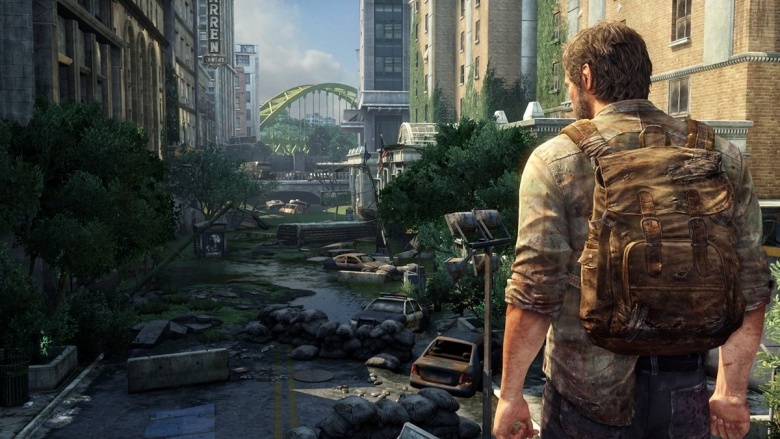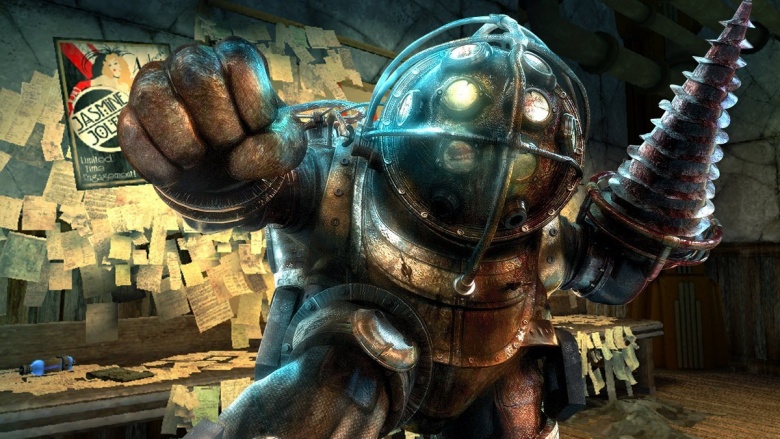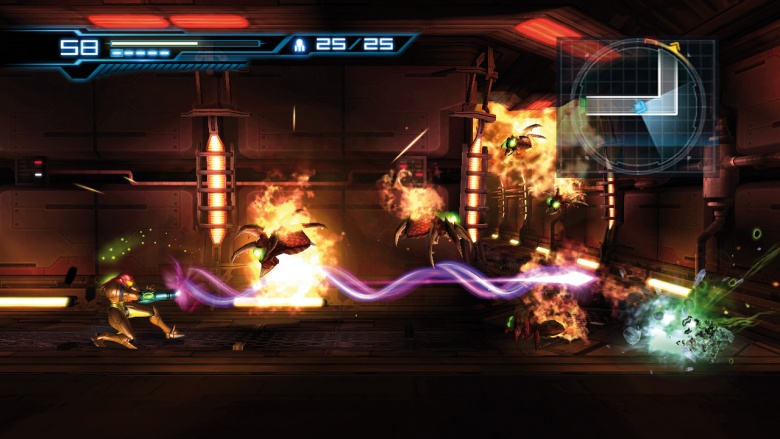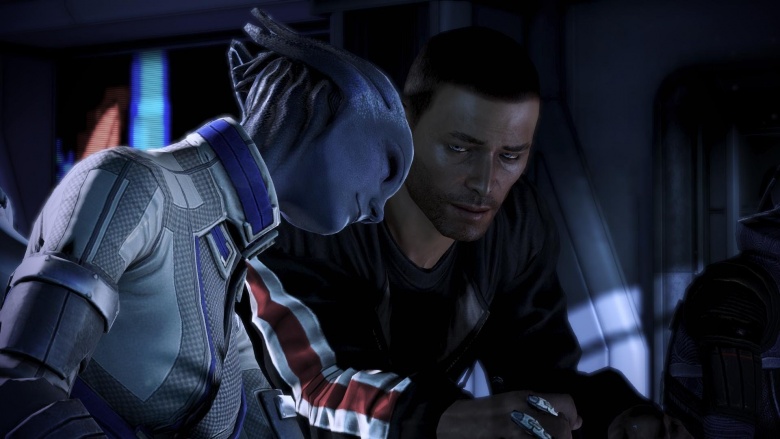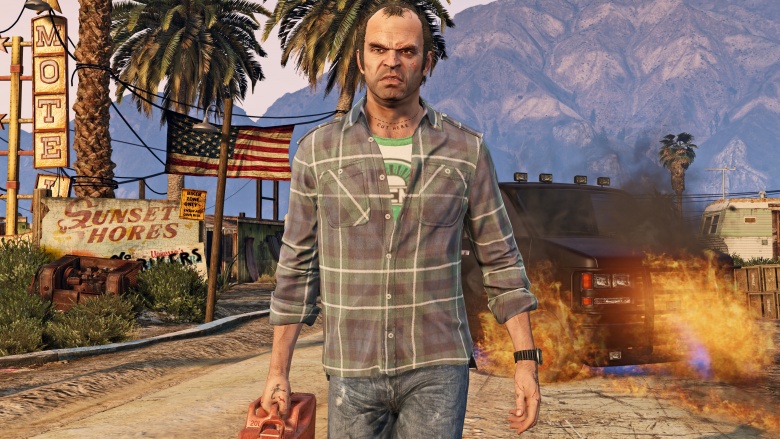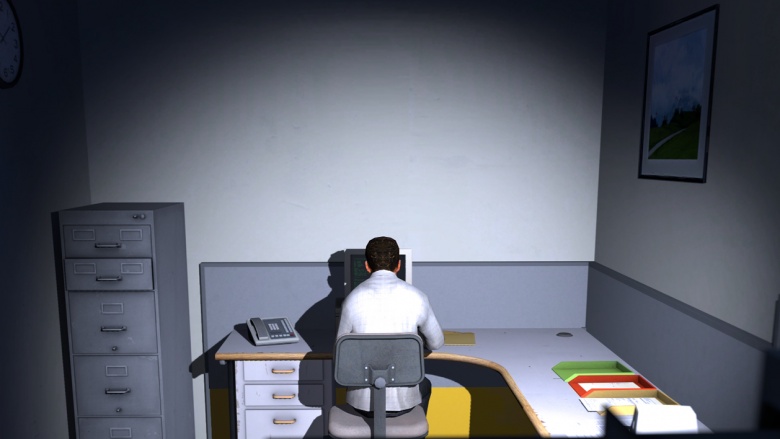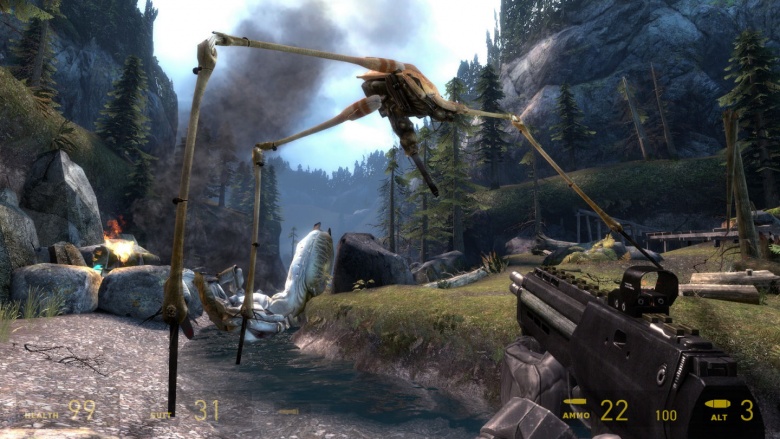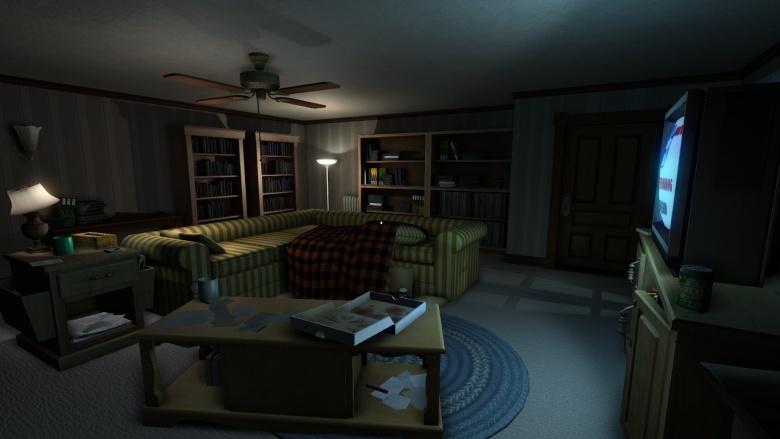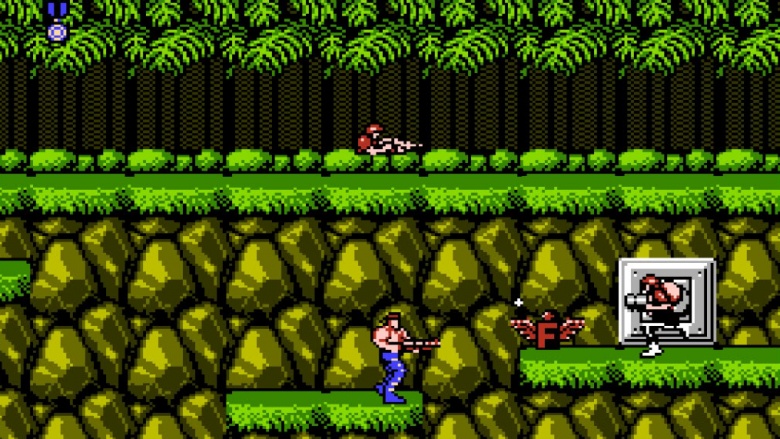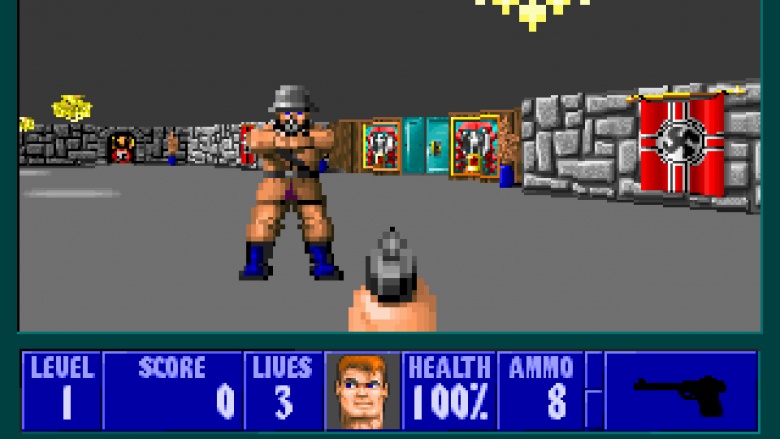Great Video Games That Should Never Become Movies
In May 2016, we learned that Hollywood has plans to produce movies based on two of Atari's 1980s arcade games: Centipede and Missile Command. It will be interesting to see how the filmmakers can possibly make coherent movies out of two nearly plotless relics of the Cold War era. This led us to wonder — what other games should Hollywood never make into movies? The easy answer is "none of them," given the poor track record of game-to-movie adaptations. Nevertheless, here are eleven games that Hollywood should definitely not bring to a cinema near you.
The Last of Us
The Last of Us, developed by Naughty Dog, shouldn't be a movie simply because it's almost one already. The game's numerous cut scenes and set pieces have a cinematic feel. All the elements that differentiate it from a movie — like the anxiety of sneaking around killer, walking fungi out to munch on your jugular — would not translate across media in the same way. To use a sports analogy, playing a soccer game is much different than watching one. Aside from that, the zombie subgenre has been played out in Hollywood. Just look at the lackluster performance of 2015's Scout's Guide to the Zombie Apocalypse. All of this — except the zombie bit — also applies to Naughty Dog's Uncharted series.
BioShock
An attempt by Universal and director Gore Verbinksi (Pirates of the Caribbean, The Ring) to make a movie adaptation of the original BioShock game died a few years ago. Mr. Verbinski's talents aside, the project's death is probably a good thing. BioShock and its sequel, BioShock: Infinite, deal with complex themes about society that would likely be diluted or eliminated from a movie meant to appeal to a mainstream audience. Both games would also be difficult to adapt, because fans are already familiar with the stories' twists. Sure, the films' producers could make some alterations to the stories, but any changes would alienate fans. It's a lose-lose scenario.
Fallout
Fallout could work as a television show, but not as a movie. The scope is too epic for one film. Think about all of the elements in the Fallout universe: super mutants, ghouls, vaults, nuclear war, the Brotherhood of Steel, etc. By the time the filmmakers established the backstory, the movie would be over three hours. Aside from that, although the player interacts with other characters in Fallout, the games place a heavy emphasis on isolation. It's difficult to envision how this feeling of isolation would translate to a mainstream movie. Besides, who needs a Fallout movie, when we have several Mad Max sequels to look forward to in the years to come?
Metroid
Nintendo reportedly wants to begin making movies based upon its iconic video game franchises. This news comes after the Big N's long hiatus from the film world following 1993's childhood-ruining Super Mario Bros: The Movie. Nintendo's Metroid series would seem a likely candidate for a movie, given its slam-dunk science-fiction setting: bounty hunter Samus Aran fights hostile aliens — including the eponymous Metroids — in a number of exotic, interstellar environments. For a long time, that was all the story you needed to enjoy a Metroid game, though more recent entries — like Metroid Prime 3: Corruption and Metroid: Other M — have since expanded the games' universe and fleshed out Samus's character. Most fans would agree, however, that — much like Fallout — the Metroid series is at its best when the player feels a sense of isolation. Mainstream movies require dialogue between characters and, usually, a focused plot that Metroid cannot easily provide. In other words, a movie adaptation of Metroid is completely ill-advised.
Mass Effect
Mass Effect, like Metroid, would seem like a good candidate for a movie adaptation given its science-fiction storyline. Mainstream audiences love science fiction, right? We're looking at you, The Force Awakens. Yet, the appeal of Mass Effect and its sequels isn't just the story, but how the player's choices affect said narrative. You obviously cannot achieve this level of interaction in a passive medium like cinema. After all, we all want Shephard to be with Liara T'Soni, not that xenophobe Ashley Williams. What if the filmmakers don't appreciate alien love the same way as us? We won't be able reload the movie and tell Ashley to scram.
Grand Theft Auto
We doubt that Hollywood will ever be able to encapsulate everything that fans love about Grand Theft Auto and its sequels, including its wanton violence and social commentary, into a movie. First, we doubt producers are willing to make a movie violent enough to placate fans. Second, like Mass Effect, the GTA games heavily revolve around player choice. Branching storylines aside, the player has a choice as to whether they want to blow up that innocent bystander with an RPG, or simply splatter them with their car. Besides, we already have two GTA movies: Crank and Crack 2: High Voltage.
The Stanley Parable
The Stanley Parable is an indie darling that takes pride in its lack of story and non-linear gameplay. You can interpret it as a parody of mainstream video games and the false sense of choice that some give players. The "story" involves the player-controlled character, Stanley, following — or choosing not to follow — a narrator's instructions around his office building. Sounds like a great premise for a movie, right? Unless we can get David Lynch on board to direct, we are content with The Stanley Parable remaining a video game.
Half-Life
Although Half-Life and Half-Life 2 both have stories, developer Valve purposely told them in an unfocused way. The full scope of what is going on is never entirely clear to the player. Who exactly is the G-Man? More importantly, where did the get that spiffy briefcase? The games also thrive on a sense of isolation that, as stated with Fallout and Metroid, will not work in a movie outside of the art house theater. Aside from all this, Jeff Goldbum — our first choice as Gordon Freeman — has aged out of the role.
Gone Home
Developer Fullbright's walking-around-a-house simulator, Gone Home, received a lot of critical acclaim when released in 2013. The non-linear narrative and mystery compelled many players. Was Gone Home a horror game? An adventure title? No one knew when they first started playing it. Your lack of expectations fueled the mystery and, in turn, your desire to explore. Mainstream movies, however, require an A to B to C sort of story. Plus, we've got to admit that watching someone putter around a dark house would get pretty boring after awhile. Remember how long the Hawkeye house scenes from Avengers: Age of Ultron felt?
Contra
A movie in which a duo of macho dudes gun down aliens would probably make a fun Mystery Science Theater 3000 episode, but not a flick that anyone would be proud to admit that they watched in the theater. We challenge anyone to tell us the story of Contra without looking it up on Wikipedia. Then again, a lack of story doesn't seem to stop Hollywood from making a movie based on a property. Right, Battleship? If some producer-turned-masochist ever does make a Contra movie, then maybe you'll get back the $30 you spent on the ticket, popcorn, and soda if you enter the Konami code on the movie theater's Twitter account.
Wolfenstein 3D
The first popular first-person shooter was Wolfenstein 3D. Sorry, Blake Stone: Aliens of Gold, but no one remembers you. Id Software, the future creators of Doom, released Wolfenstein 3D to the Super Mario World-playing masses back in the prehistoric year of 1992. If this were the 1970s, then the "story" of Wolfenstein 3D would make an excellent schlocksploitation film. Alas, Id Software birthed the game in the wrong era. You kids of the '90s must admit, though: you were disappointed when Saving Private Ryan didn't turn out to be a Wolfenstein adaptation. Curse you, Spielberg!

